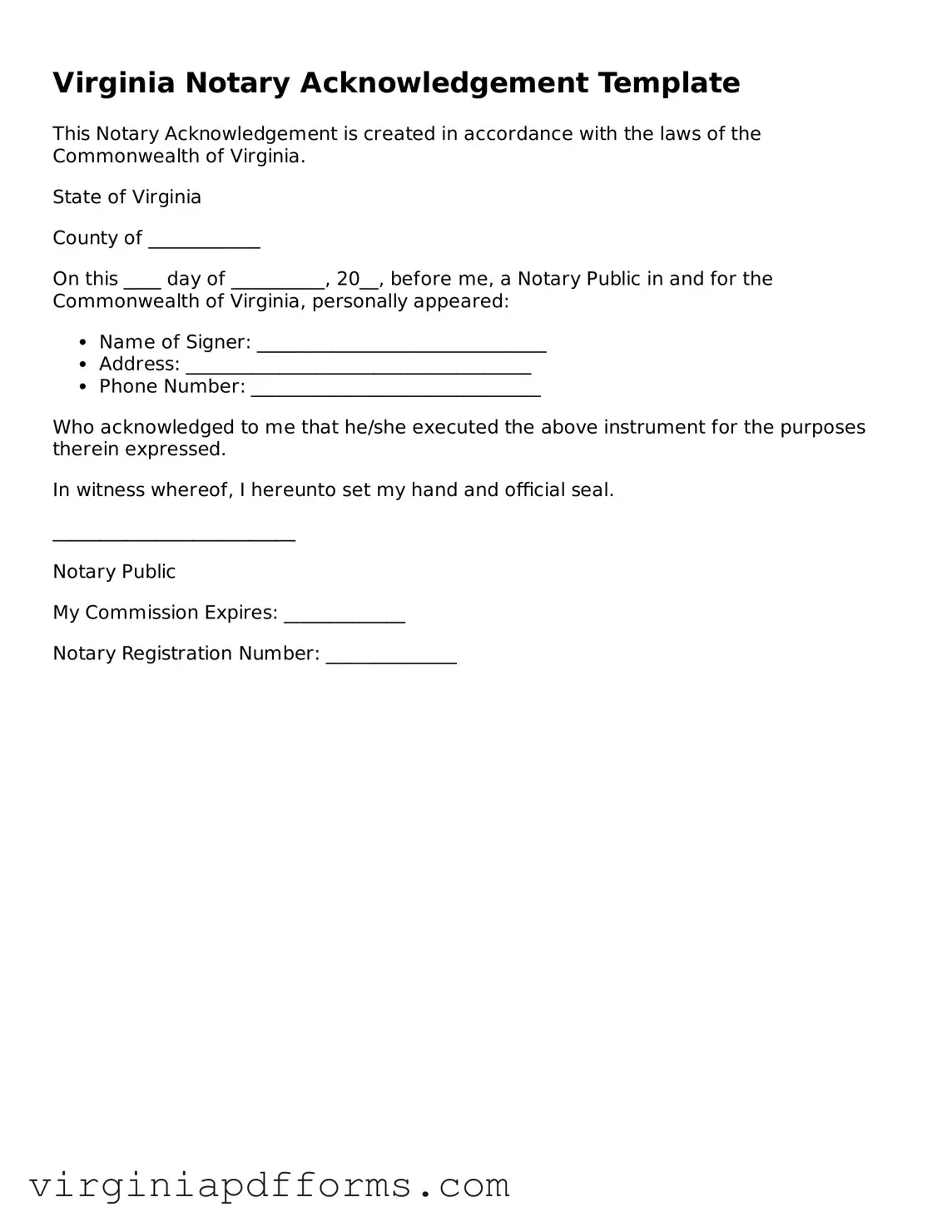Attorney-Approved Virginia Notary Acknowledgement Document
The Virginia Notary Acknowledgement form is a legal document that confirms a person's identity and their willingness to sign a particular document. This form serves as a crucial part of the notarization process, providing assurance that the signer is acting voluntarily and is aware of the contents of the document. Understanding its purpose and proper usage is essential for anyone involved in legal transactions in Virginia.
Access My Document Now

Attorney-Approved Virginia Notary Acknowledgement Document
Access My Document Now

Access My Document Now
or
Free Notary Acknowledgement File
Need this form wrapped up fast?
Finish Notary Acknowledgement online — edit, save, download without effort.